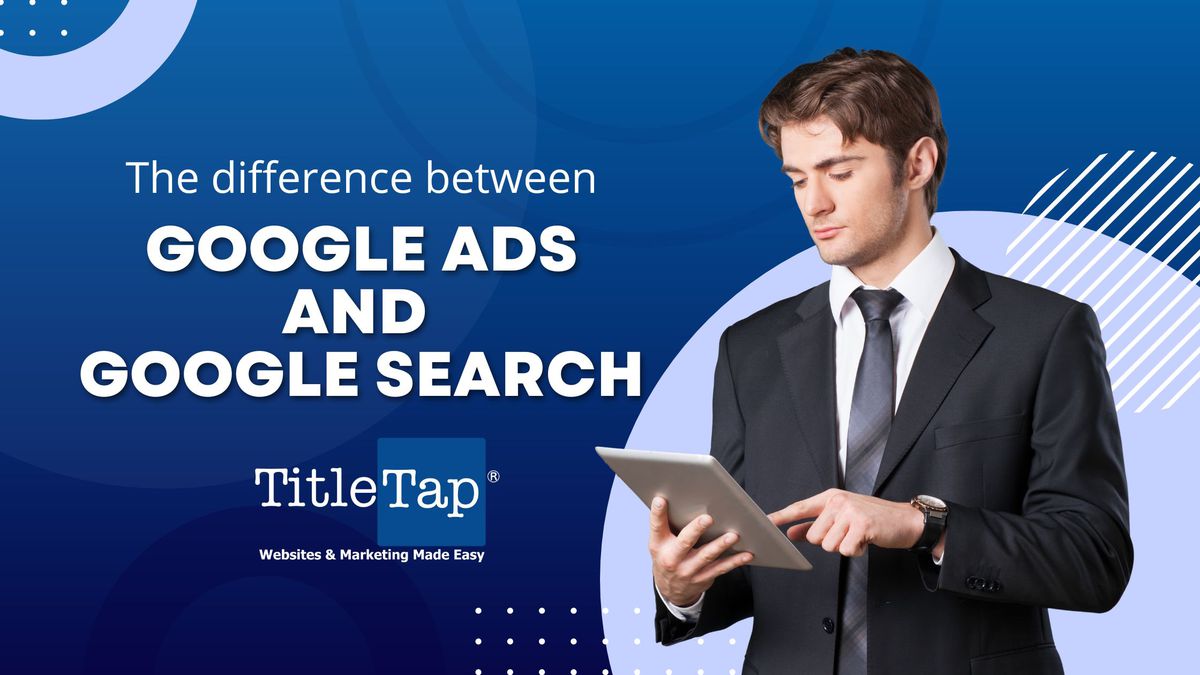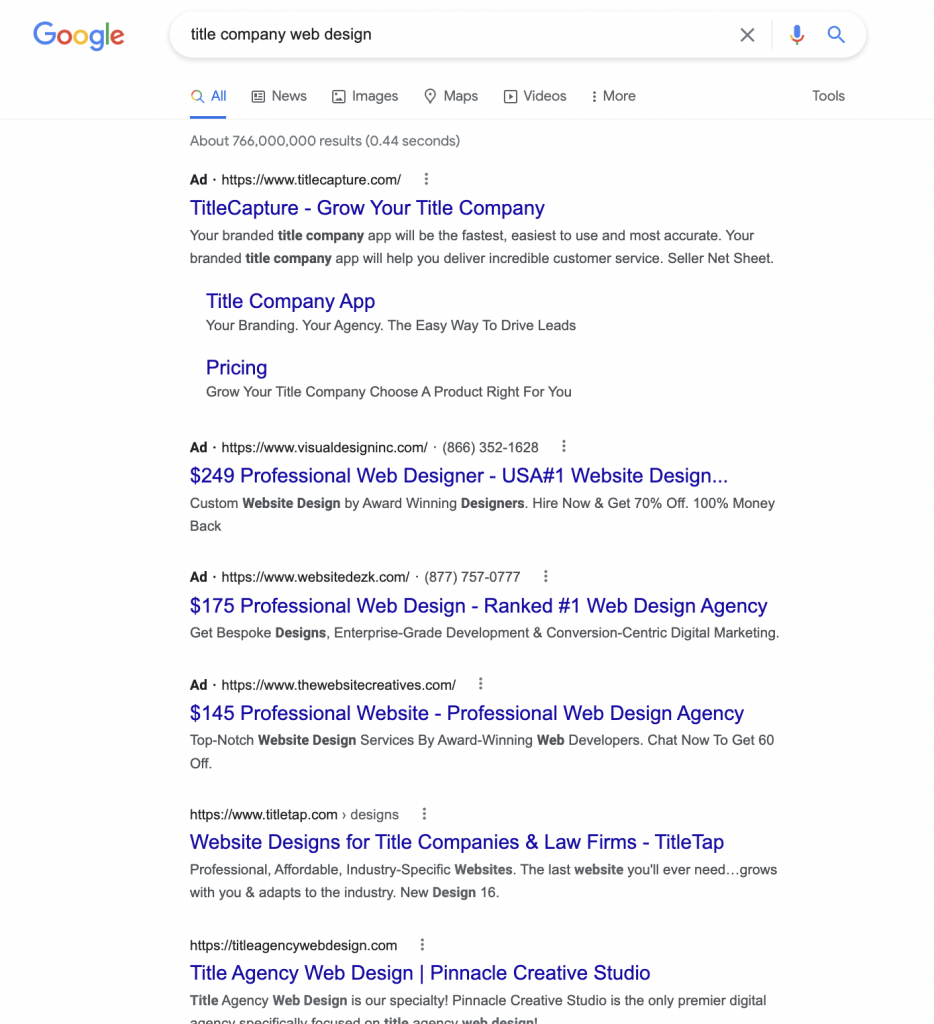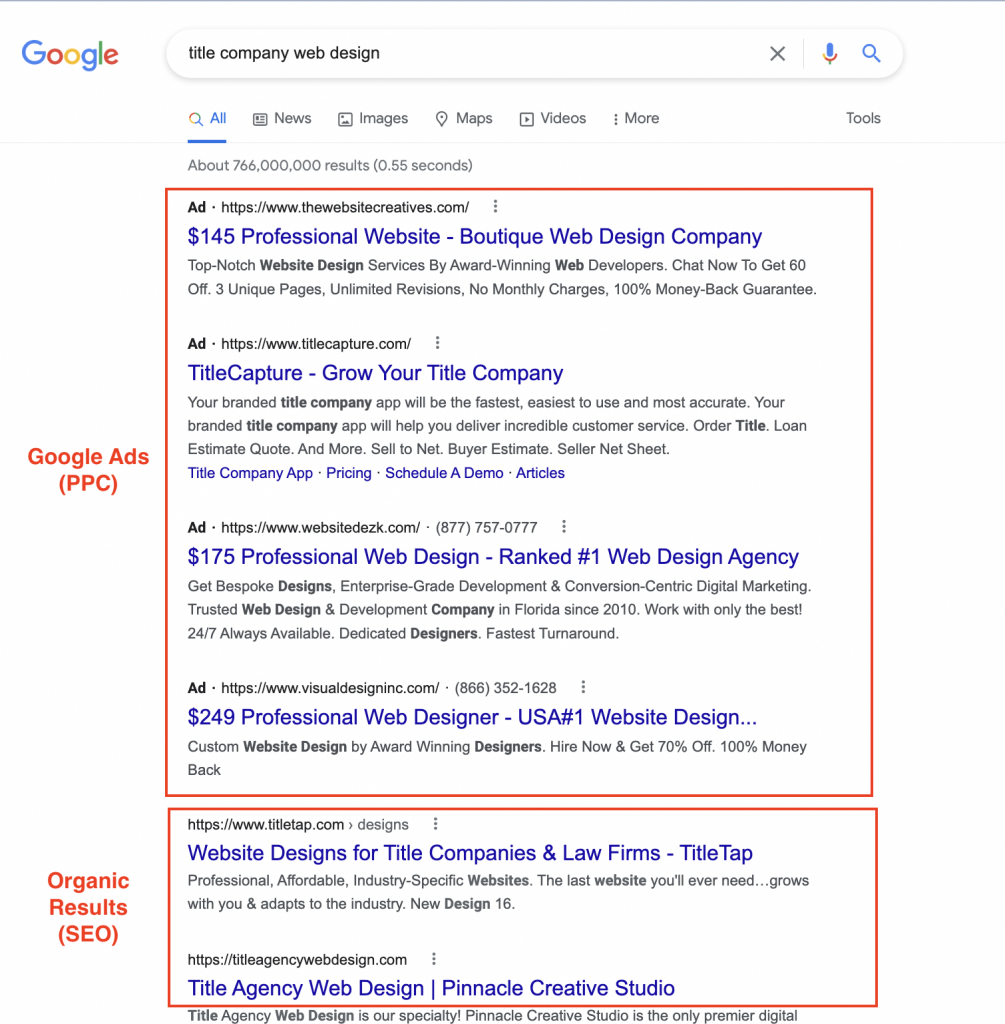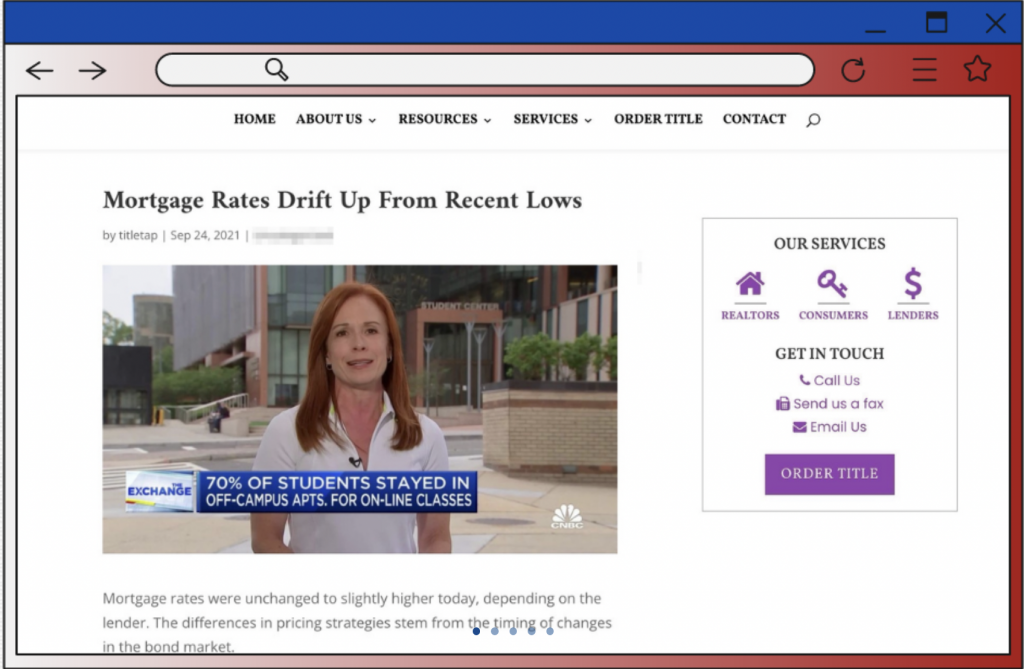Over the last decade, we’ve worked with thousands of attorneys and title agents.
One question that often still gets asked to this day is what the difference is between pay per click (PPC) such as Google Ads and search engine optimization (SEO) such as showing up in Google’s search results?
In this post, we’ll explore the similarities of the two, their differences, and the basics of how both can be leveraged for the same purpose.
Similarities of PPC & SEO
The main similarity between PPC and SEO is to have your company’s website show up in Internet search results.
Whenever someone types something into a search engine, it shows a results page like the following:
From this page, the searcher can click the website they see as the most fitting for their search.
Both PPC and SEO can help your website show up here on the search results page.
The search results page and your website.
Did you know that most Internet searches end with the first page of results? In fact 91% of clicks come from the first page of Google’s search results.
This means that if your website is ranking on page 2 or beyond, the vast majority of people never see it.
This is why it is so important for your website to rank on page 1!
PPC is what helps you do this for a ongoing fee whereas SEO is what helps you do this orgaincally.
Search Engine Optimization
Content is king in Google’s eyes so if you want to rank well organically in search engines, the first thing you need is content. But not just any content, you need keyword rich content that relates to the topics you ideal customers or clients are searching for.
For instance, a website about “cats” will never show up in search results for “dogs.” This sounds obvious but in practice it is often overlooked.
A few years ago an attorney approached us and was upset that their current website wasn’t brining in business for a specific practice area.
Upon reviewing their website with them, we pointed out that the website didn’t have any content, pages, or blog posts related to that practice area.
The simple fix of adding 4 posts and 1 page related to that practice area – in particular, the common questions people have and how this law firm could help, solved the problem and their website started ranking.
Other factors of SEO
There are other factors that can help your website rank well in search engines that people will try to sell you. These include backlink building and technical SEO such as manipulating meta tags and whatnot.
But I’d recommend steering clear of those unless you really know what you are doing and have first built out a library of useful content first.Those tactics can work but can also have the reverse effect if not done properly.
Focus on quality and relevant content and the rest will come in time.
SEO takes time
Content generation for SEO purposes can provide a great return on investment. But the downside is that it can take time and experimentation to see what works. Not every article will yield results and you won’t know what kind of results you get for weeks if not months. It is a great long term strategy, but doesn’t give you much instant feedback.
That is the downside of SEO – it takes a lot of time and results are not clear very quickly.
Pay-Per-Click & Google Ads
We already discussed the pros and cons of SEO. Now we move on to Google Ads and other Pay-Per-Click (PPC) options.
Once Google had proven itself as providing the best search results, it needed to figure out how to monetize it.
Their idea was to allow a certian number of websites to pay for specific keywords, in order to rank at the top of the search results, while showing the organic (SEO) results below the ads.
The difference between the paid listing and the organic listing is very subtle:
This worked out really well for Google and has made them one of the most well known companies in the world, and it worked for small businesses and advertisers as well.
Today, Google, Bing’s and many other company’s business model is largely based on this same concept. Although the rules and options have changed, the core approach remains unchanged.
How Google Ads work?
In short, as a business owner, you can buy certain keywords that pertain to your business, write ad copy, and your ads will be displayed in rotation with other advertisers for those keywords or phrases.
You will only pay when someone clicks on your ad – hence “pay-per-click.”
And if you know what you are doing, you can quickly show up a the top of the search results.
Pay-Per-Click Devours Money
All of that sounds great and it is. But the downside of PPC is that it has gotten expensive. You have to make sure the product or service you are offering pays for the ads and allows you to earn a profit.
Also, if ads are working for you now, there is always the risk of other competitors running ads against the same keywords and stealing away some of the business you were getting from the ads.
This is why, although PPC is a great option, I still consider it a good short term and supplementary approach. Once you get Google Ads working, don’t be complacent, work on other means of generating leads as well so that if something does change outside of your control, you have another channel of business.
Which is better? PPC or SEO?
There is no silver bullet. Both PPC and SEO have their merits and flaws. One is fast, the other can be painfully slow. One can become expensive and the other can be done on a small budget. One can last a long time, the other can require re-inventing frequently.
For most companies wanting longevity and to grow, I recommend investing in both but for different reasons:
PPC can get you a quick win and leads coming in on month 1 but might be hard to sustain long term, or guarantee.
On the other hand, investing in SEO can get you ranking at the top of the page for the long haul but it can also take a lot longer.
Looking for help with SEO and/or PPC?
TitleTap has several solutions to help with both SEO and PPC:
Industry Blog Post & Videos
[IMAGE of Video]
In Google’s eyes content is king. Let us search engine optimize (SEO) your website with our stack of industry content and videos. The content answers commonly searched questions about title insurance, mortgages, real estate, and law, and as a result raises your average search ranking quickly.
Content Marketing with Socialite™
Do you want fresh content on your blog and your company’s Facebook page? Look no further than Socialite™ – our tool that curate local industry content, publishes it to your blog, then shares it on your Facebook page. You get the traffic and likes.
Google Ads and PPC
Google Ads puts your title agency or law firm in rotation at the top of the search results. Are you a new company? Do you have competitors in your market? Google Ads is a great solution to outrank them, and get found before they do.
Retargeting Ads
As with most service business, your ideal customers may not have a deal or case for you today, but they may tomorrow or next week. It’s your job to stay in front of them so that they call you when they need you. Retargeting or remarketing ads do just that – keep you top of mind.
Next Steps
Interested in making your website more findable online than your competitors? Reply to this email to schedule a risk free demo to learn more about how any of these can help your company!






